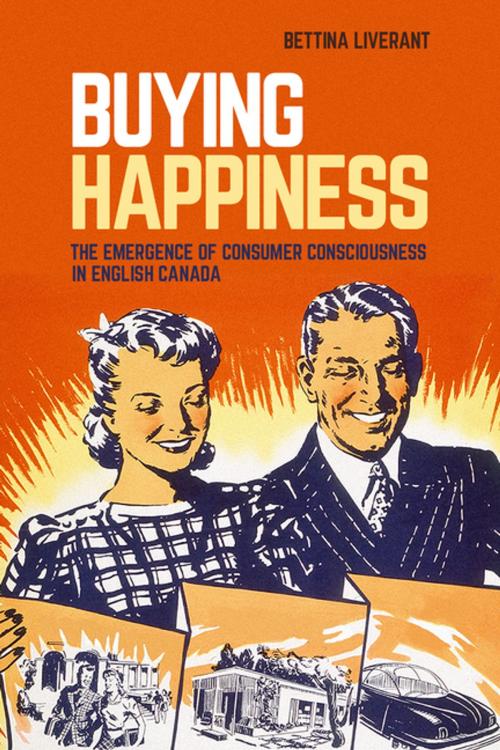Buying Happiness
The Emergence of Consumer Consciousness in English Canada
Nonfiction, History, Canada| Author: | Bettina Liverant | ISBN: | 9780774835169 |
| Publisher: | UBC Press | Publication: | June 1, 2018 |
| Imprint: | UBC Press | Language: | English |
| Author: | Bettina Liverant |
| ISBN: | 9780774835169 |
| Publisher: | UBC Press |
| Publication: | June 1, 2018 |
| Imprint: | UBC Press |
| Language: | English |
The idea of Canada as a consumer society was largely absent before 1890 but familiar by the mid-1960s. This change required more than rising incomes and greater impulses to buy; it involved the creation of new concepts. Buying Happiness explores the ways that key public thinkers represented, conceptualized, and institutionalized new ideas about consumption and consumer behaviours.
Breaking new ground, Bettina Liverant connects changes in consciousness to changes in the economy and in behaviour. The emphasis is on concepts and categories rather than on the buying and selling of goods. The rise of consumer society, she shows, was not simply the result of economic changes in productivity and affluence; it involved and required changes to how people think. Topics include the creation of Canada’s first cost-of-living index in 1914–15, the development of consumer consciousness during the Great Depression, and the ways in which popular magazines encouraged an ethic of cautious consumerism in the postwar period.
As the figure of “the consumer” moved from the margins to the centre of social, cultural, and political analysis, the values and concepts associated with consumerism were woven into the Canadian social imagination. Consumer society developed as a contested, yet increasingly pervasive, way of thinking about ourselves, our relationships with others, and our relationships with things.
The idea of Canada as a consumer society was largely absent before 1890 but familiar by the mid-1960s. This change required more than rising incomes and greater impulses to buy; it involved the creation of new concepts. Buying Happiness explores the ways that key public thinkers represented, conceptualized, and institutionalized new ideas about consumption and consumer behaviours.
Breaking new ground, Bettina Liverant connects changes in consciousness to changes in the economy and in behaviour. The emphasis is on concepts and categories rather than on the buying and selling of goods. The rise of consumer society, she shows, was not simply the result of economic changes in productivity and affluence; it involved and required changes to how people think. Topics include the creation of Canada’s first cost-of-living index in 1914–15, the development of consumer consciousness during the Great Depression, and the ways in which popular magazines encouraged an ethic of cautious consumerism in the postwar period.
As the figure of “the consumer” moved from the margins to the centre of social, cultural, and political analysis, the values and concepts associated with consumerism were woven into the Canadian social imagination. Consumer society developed as a contested, yet increasingly pervasive, way of thinking about ourselves, our relationships with others, and our relationships with things.















